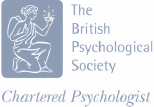Latest Videos | Latest Articles
1. What are Relationship Difficulties?
Relationships are an important and meaningful part of our lives, and they can offer fulfilment and a sense of happiness. We are at our healthiest and at our most productive when we have strong connections with other people, including our friends, work colleagues and most importantly our loved ones. Our relationships with others provide a vital source of guidance, advice, support and love. However, supportive and rewarding relationships require work, both in the form of time and energy put into the relationship, and in the form of good social skills and consideration of others’ needs. Meaningful connections can sometimes breakdown and when they do people can feel disappointed, lonely and unsure of how to react. In some situations our life satisfaction and happiness may diminish if our relationships fail to fulfil our expectations. On the other hand, some people may find it hard to develop close friendships or romantic relationships despite desiring to be close to others.
2. Causes, signs and symptoms
Individuals and couples may seek therapy for a host of different reasons or problems. Typical reasons include unhappiness about their sexual relationship, increased frequency or severity of arguments, communication difficulties, or they may seek relationship therapy with either a specific set of problems that they want to address, or they may experience a general dissatisfaction with their relationship but find it unclear why they feel this way. People may also seek relationship therapy because they feel stuck in the relationship and they are hoping therapy will provide one final attempt to resolve this before they consider seeking separation or divorce. It is also common that major life changes or extramarital affairs can cause individuals or couples to seek relationship therapy. Unhappy couples typically have few rewarding or enjoyable interactions together. Instead, their interactions may include blaming the partner, anger towards self and the partner, economical, emotional, verbal or physical punishing. Distress in a relationship can often be characterised by repeated negative behaviour towards a partner. Couples who are distressed regularly experience a loss of satisfaction, and they may be identified through their inability to resolve conflict and their reactiveness to their partner. If relationship difficulties are not addressed then they may result in destructive patterns of neglect, arguments, criticism, and negative expectations and beliefs about the relationship and the partner.
3. Diagnosis
When diagnosing relationship difficulties, the focus will be on identifying and understanding patterns of interaction between or among members of a relational unit. It is important to understand how these patterns of interaction cause a clinically significant impairment in functioning in one or more members of the relational unit. Typical signs to look out for include; recurring conflicts or arguments that cause distraction from or preoccupation with activities of daily living; withdrawal or lack of communication that results in frustration or anger; inappropriate kinds of communication between individuals; avoidance of the person who is thought to be causing the distress; stress caused by the threat of separation; increased sleeplessness, depression, irritability, or social withdrawal; displacement of emotions towards a third party; low energy, tearfulness and withdrawal from the relationship; arguments that repeatedly go unresolved due to insufficient conflict resolution strategies; arguments that have a negative impact on work performance; a over-involvement in other individual’s life activities; relational problems between the parent and child; and relational problems between siblings. Attention should also be given to exclude alternative mental health diagnosis.
4. Treatment
Regardless of what the relationship issues is, relationship therapy may provide a form of help. In relationship therapy a therapist will work with individuals or couples in exploring their current relationship difficulties, and help them understand what they want from their relationship and how they may achieve this. Depending on the needs of the individuals involved, relationship therapy can focus on bringing a relationship back on track, or on arriving at an amicable separation. According to the National Institute for Health Care Excellence (NICE) the recommended psychotherapy for relationship difficulties is Couples Behavioural Cognitive Therapy. This kind of therapy proposes that couple distress can be understood on two levels. It argues that distress either arises when partners are unable to resolve their relationship issues due to an unwillingness to change, or as a consequence of the couple’s ineffective coping strategies aimed to resolve their relationship difficulties. Couples Behavioural Cognitive Therapy focuses on understanding the relationship goals, identifying the causes of distress, and exploring strategies that might provide effective support in reaching the specified relationship goals.
How to communicate in a relationship
Have you ever wondered if only you can find a way to communicate better with your partner so you’d be happier in your relationship?...Read More »










